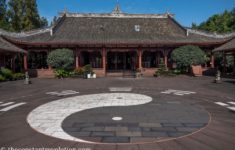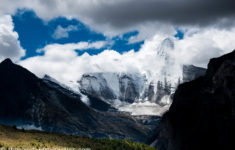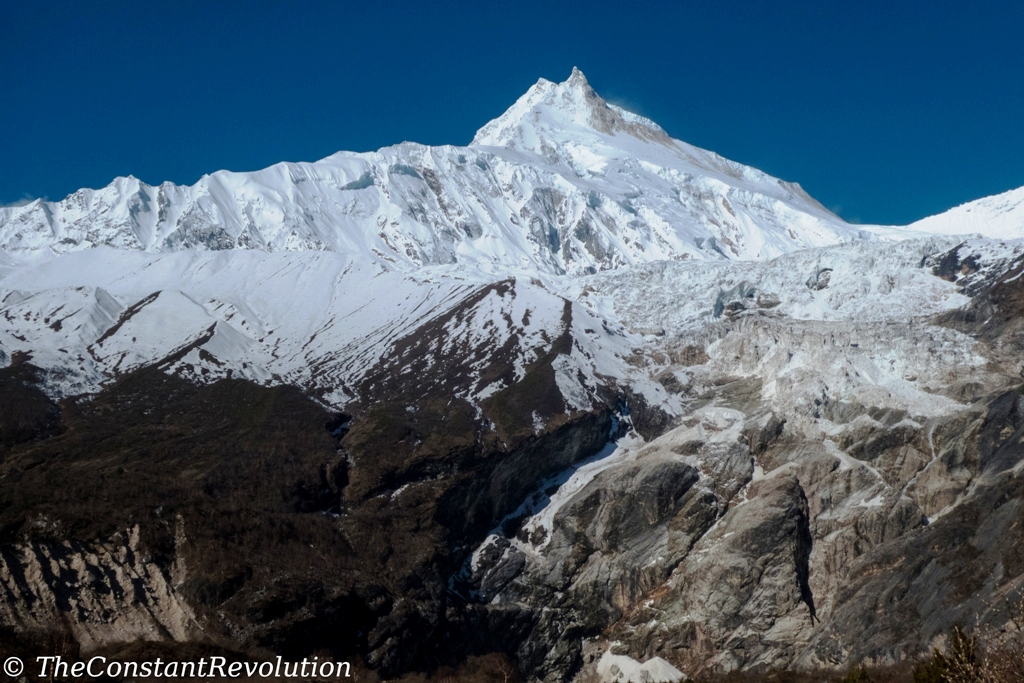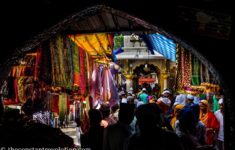Uncontrolled over-development, plastic pollution, strong corruption, and a nonconstructive, sometimes violent attitude towards foreigners, makes Cambodia one of the worse places I have visited, despite the potential to be a real paradise. Here is my experience, and the reasons behind this assessment.
When you travel long-term and you visit many different countries not all the experiences are positive or rewarding. Much of the difficulties are taken into account by the traveller: language and cultural barriers, lack of hygiene, uncomfortable transport, lack of facilities, safety issues, even scams of all kind… adaptability is a must, and so one adapts.
However, as much as I write about the beautiful things I have the chance to see and do, and I take a nice photo to post on Instagram etc… I also try to keep an objective look on the countries I visit, to understand what’s going on there, and to tell the other side of the story, the one where I have a “bad feeling about it.”
I spent about two months in Cambodia, and despite the beauty and natural interest of many destinations, which I believe I made clear in my previous posts, I have found the country difficult and problematic under several aspects.
I do not claim to understand a whole country and its people in two months, that is not possible. I just base the following reflections on my own experience, perception, and on what I have seen. Here are the reasons behind such a harsh assessment:

Do Cambodian Want Tourist?
In several occasions I have had the feeling that Khmer people are angry at the outside world, at the foreigner visiting the country. It’s something difficult to explain, as it is a kind of gut feeling, and I will not even try to go into the why it could be so. The still recent history of the country is full of absurd violence, a trauma the whole country probably struggles to recover from.
However, as a traveller or tourist visiting the country, I have often encountered a very negative, resisting kind if attitude, as if I was seen as an annoying intrusion in their daily routines. This is mostly true for those guest houses and hostels managed completely by locals. There is no curiosity, no interest whatsoever in a conversation or contact that does not end up in procuring another buck for the day, not even for a laugh.
I do understand the financial situation of many people is dire, and thinking about how to make money is their priority. Still, there are many ways of doing so, and here the attempt to deliberately fuck you over on every little thing is so blatantly obvious that it really gets on your nerves.
I do understand some forms of tourism is disgusting (I have seen several old, too old Western guys “travelling” around with young Khmer girls) and should be banned, and I do understand tourists come and go, they are unimportant. Still, in many other countries in Asia and south-east Asia the vibe is more relaxed, people are smiling and having a laugh, or they just got how the business works. Be it as it may, the interaction, even if not “real”, is at least pleasant.
In Cambodia, the impression is that they smile and are polite, when they are not outright rude, only because they have been instructed to do so, and they follow the instruction to the letter, without ever thinking, while you can tell they are annoyed by your presence.
They hate they have to listen to you, they hate they have to serve you because you are paying for a service, be that small or big: hotel, transport, massage, information… anything. Everything is low quality, done with resentment, done without any effort to provide a quality experience, and with no regards for the consequences.
A misplaced sense of pride fogs their judgement about the nature of the job with tourists and travellers, which is, or should be, just like everywhere else in the world. Add a strong liking of alcohol, much more than any other place I have visited, and you’ll get a good picture.
In one occasion I have been assaulted by a receptionist, who violently and vilely attacked me with a 2 m. long 10 cm wide bamboo bat, calling me names and in between making it clear that this “is his country”. This because I put him some pressure to pay for an extra night at the place, while he kept making me wait for no reasons. I might have been a little rude? I am not sure, but it’s still no reason to call someone a “bastard” and then attack. The truth is this guy, receptionist in a guest house, didn’t want to be bothered by me, didn’t want to listen to me, he just wanted the foreigner to shut up and wait, to do as he said. I obviously defended myself, but the management beside separating us from the fight did nothing, they even pretended not to know the number to call the police! They acted as if stuff like these would be normal. (The place is the called Tropical Breeze, in Siem Reap, just stay away from that madhouse).
But besides the obvious personal resentment I got from this unlucky episode, in general I haven’t felt welcomed in Cambodia by the Cambodians. The only places where I have felt welcomed, I am sad to say, were managed by foreigners.
The plague of over-development
All along the coast development is going out of control, to the detriment of the beauty and charm of these places, but also to small local businesses, and to the jungles and the wildlife within them.
In Sihanoukville for example, a big industrial city and departing point to reach the famous Cambodian islands of Koh Rong and Koh Rong Saloem, Chinese are investing huge amounts of money to build casinos for their own people, who restrained in their own land, fly to Cambodia to “have some fun” and spend (read lose) some money.
The whole skyline of the city is an eyesore, with many big concrete buildings and skyscrapers right on the shore. As if that’s not enough, Chinese development plans are becoming a big cause of deforestation in the area between Sihanoukville and the south of Thailand. Here the still partially uncharted jungles of the Koh Kong province, where lots of wildlife is still striving to survive, is being taken down bit by bit. This is unconfirmed, as I only heard stories, but it seems there is a real confrontation going on between the last remaining herds of wild elephants in the area and the human invaders. Who do you think is going to win?
Other stories I heard are about corruption, another Cambodian’s plague. It takes all levels of the public administration, which is selling out the country to the foreigners with the most money, instead of planning out how to make it the beautiful paradise that it should be.
One hideous practice, I have seen myself, is that of setting the jungle on fire to claim property of the land, as the law does not allow to own jungle land. But if the jungle is gone, then it’s a whole different story. Then someone will come in and claim the land, and then lease it or sell it to… well, mostly the Chinese. When I was staying in Koh Rong island there was a fire so big on mainland that it could be clearly seen from there. It lasted for a couple of days.
Another example? Both Khmer and foreign companies (mostly Chinese) are buying lots of lands around the rivers and canals of Kampot, and soon they will start building big residential areas, or bigger and more modern resorts for tourists. It seems everyone is accepting this as an inevitable process. All the small and Eco-oriented lodges are destined to disappear, along with the bamboos around the canals, the quiet, the lush green, and the palms that grow naturally along the red dirt roads. I have seen myself cutting them down to build an unnecessary huge road.
The owner of the beautiful Eco-lodge where I was staying confessed to me that he has put the place on sale, even though it took him two years to build it and it has been open only for one. He thinks if he doesn’t sell now, he will be pushed out of business. And in any case what’s the point of keeping a place like that if all around it there will be residential areas and big resorts? The quiet would be gone anyway. How could I blame him?

The plague of plastic
Don’t get me wrong, plastic is a plague in the whole world, but in Asia it is particularly visible. I have travelled extensively in India, Nepal, China, Thailand, Laos and Vietnam, and it’s the same everywhere. Plastic is on the streets, in the sea, on the mountains, in the lakes, in the rivers, everywhere!
There is no education about the impact on the environment of the use of plastic or plans to educate people. Not even the lodges managed by westerners try to educate the locals, which is a shame. There is no infrastructure to collect and recycle plastic (although this is not a solution at least it wouldn’t be all over the place). Even tourists often can’t find a bin, so that the only solutions left is not buying anything. Honestly, very few people have the will to apply coherently this policy when travelling. Sometimes locals put all the plastic together, and they burn it. That’s as good as it gets to getting rid of it.
So why am I writing this about Cambodia? Well, first I did write about it for other countries too, here and there in my posts. Second, believe it or not, Cambodia reaches new heights in the amount of plastic that can be found everywhere. It’s unbelievably sad to see. I saw people nonchalantly throw plastic in the rivers, on the streets, in the sea. I have never seen so much plastic on the beach, and in the sea during navigation, or on my skin during snorkelling.
Very few businesses have the slightest idea of applying simple solutions such as stop selling plastic water bottles and use refills instead, or drinks with plastic straws, and this includes the most modern hostels and guest houses in developed areas like Siem Reap and Phnom Penh.
There’s a complete lack of awareness regarding the plastic problem, but also lack of interest. You don’t need to know the long terms effect on the environment to collect the plastic scattered around your garden, it’s just a matter of common sense.
On a highway to hell
Locals do not realise the richness they are loosing in terms of natural beauty to attract positive, responsible, and also rich tourism. They are not capable to look a little further into the future, focus as they are on the extra buck for the day, while their political class is selfishly selling out the country to foreign investors. It seems they are all doing their best to make Cambodia an ugly place.
What will become of Cambodia, in 10 or 15 years time? I don’t know. Perhaps it will be a place for a rich Chinese middle-class with no concern nor awareness about the environment, but interested in luxury places where they can spend their money. Perhaps that flow of money from foreign investors will finish, and they will leave behind environmental destruction, plastic, and a lot of concrete. It certainly won’t be a place I’d love to visit any longer, as it is, by what I could see, on his way to becoming hell.
I believe this will become a trend everywhere in the world, the more informed and concerned people are about the environmental problem, the less they will travel in places that haven’t taken care of it. In other words, responsible tourism will become more and more a criterium for richer people to decide where to travel. Cambodia has better realize this quickly, the world is full of beautiful, and cleaner places.








Interesting!
And you’re not the first person that tell me that people in Cambodia can be, well, challenging…